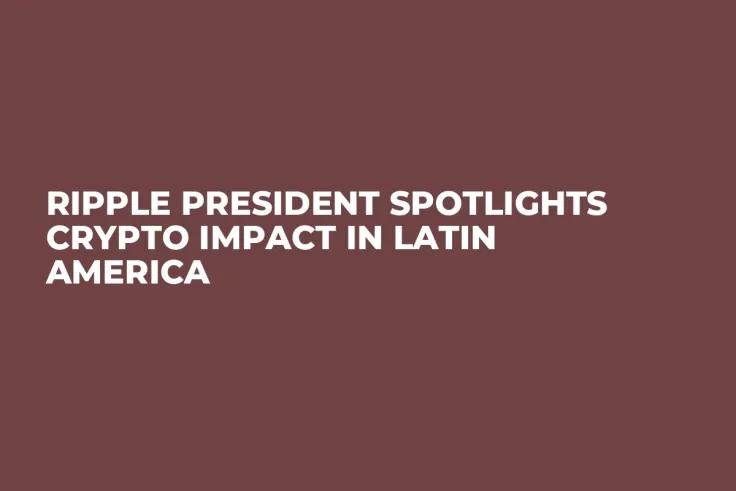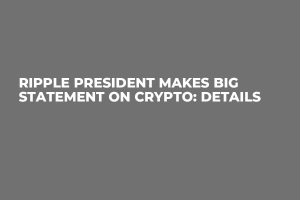
Disclaimer: The opinions expressed by our writers are their own and do not represent the views of U.Today. The financial and market information provided on U.Today is intended for informational purposes only. U.Today is not liable for any financial losses incurred while trading cryptocurrencies. Conduct your own research by contacting financial experts before making any investment decisions. We believe that all content is accurate as of the date of publication, but certain offers mentioned may no longer be available.
Ripple president Monica Long has cast a spotlight on the growing influence of cryptocurrency in Latin America, with Brazil rapidly emerging as a key crypto hub.
Ripple's president highlighted Brazil's growing prominence on the crypto landscape, citing the country's TradFi engagement, proactive regulatory approach and growing developer community.
One of the key drivers behind Brazil's rise as a crypto hub is the country's forward-thinking regulatory framework, which has provided clarity and legal certainty for crypto businesses operating within its borders.
In recent years, Brazil has taken major steps to regulate and embrace cryptocurrencies, recognizing their potential to drive financial inclusion and promote economic growth.
"Brazil is quickly becoming a key crypto hub globally with its forward-thinking regulators (and clear policies), TradFi engagement and a growing developer community," the Ripple president noted in a tweet.
Long was in attendance at the ongoing Web Summit Rio, which takes place in Rio de Janeiro, Brazil, and brings together over 30,000 people and enterprises redefining the tech industry.
Ripple appears to be aware of Brazil's growing crypto effect as well as the potential for the country to serve as a catalyst for crypto adoption throughout Latin America: Brazil is home to Ripple's first regional headquarters in South America.
In expansion moves in Latin America, Ripple partnered with Colombia's central bank, Banco de la República, to explore the use of blockchain technology in June 2023.
The initiative, which was part of a blockchain experimentation phase conducted by the Ministry for Information and Communications Technologies (MinTIC), will improve the Banco de la República's high-value payments system by utilizing Ripple's CBDC platform.


 Gamza Khanzadaev
Gamza Khanzadaev Tomiwabold Olajide
Tomiwabold Olajide Arman Shirinyan
Arman Shirinyan Yuri Molchan
Yuri Molchan Godfrey Benjamin
Godfrey Benjamin